- Andersons’ consultants are continuing to support their clients during the pandemic. If you require any advice, please contact them, their details can be found at the end of this Briefing.
- The biggest reform of the Planning system in England since 1947 is being promised by the Government. It released a Planning White Paper and Consultation, ‘Planning for the Future’, in August looking to free-up constraints on development in order to drive economic growth whilst, at the same time, protecting important areas and delivering ‘sustainable, beautiful, safe and useful development’. The full consultation can be found at – https://www.gov.uk/government/consultations/planning-for-the-future. The closing date for consultation responses is October 29th.
- Agreement between the UK and the EU on a Free Trade Agreement seems as far away as ever. Speaking after the latest round of talks from 18th to 21st August, the EU’s chief negotiator was notably downbeat. From the UK side, there were similar sentiments. David Frost, the UK’s negotiator stated that “agreement is still possible, and it is still our goal, but it is clear that it will not be easy to achieve.” The sticking points have not changed. There remains a wide divergence on fisheries, the ‘level-playing field’ provisions and the role of the European Court of Justice.
- Defra has released a ‘Countryside Stewardship Greening Amendment Form’. This relates to Mid and Higher Tier applications for agreements which are due to commence 1st January 2021. Because the Greening requirements have been abolished in England under the BPS for 2021 onwards, the RPA has recognised applicants may now want to use some of their previous EFA land as part of their CS application. From 2019, there were 19 CS options for Higher Tier and 18 for Mid Tier which fell under the ‘double funding’ rules and it was not possible to overlap these CS options with EFAs on the BPS application. The form can be found via https://www.gov.uk/government/publications/greening-amendment-form-countryside-stewardship.
- The Welsh Government has announced there will be a Basic Payment Support Scheme in operation again for 2020 BPS payments. This will make payments of up to 90% of an individual business’s anticipated 2020 BPS claim value. Loans will be made to those whose claims have not been fully validated in time to make the BPS payment on 1st December; Support Scheme monies will be made during the second week of December. The online application process will be open from 1st September and all claimants are advised to apply as there is no way of telling which claims will be ready for payment on 1st December or whether the Support Scheme will be required.
- The Government has announced the ban on evictions from residential properties will be extended for a further four weeks. It has also said, for England only, the notice period to evict a residential Tenant will be increased to six months. Both measures have been introduced to give Tenants more protection from eviction due to the effects of Coronavirus, with the longer notice period designed to give them certainty over the winter.
- The 3rd Woodland Carbon Guarantee (WCaG) auction will take place online between 26th October and 1st November. The WCaG provides owners of new woodland projects the option to sell their captured carbon in the form of carbon credits, called Woodland Carbon Units to the Government for a guaranteed price, protected against inflation, every 5 to 10 years for 35 years. A further £10m, from the scheme’s £50m budget is available. Applications to the scheme must be made by 11th October.
- The sugar beet base price for next year has been set at £20.30 per tonne, compared with the current £19.60 per tonne. Both these prices have no crown-tare deduction. From 2021 there will be a new sugar scale which will see farmers paid directly based on the sugar content of their beet. The market-related bonuses will be retained. There will also be a three-year contracting option for 2021 – 2023, at a fixed price of £21.18 per tonne. A pilot scheme, linked to the sugar futures market, will also be available for 100 growers in the first year who can allocate up to 10% of their contract to this mechanism. Producers will be able to fix a price based on prevailing values on the sugar market. For the first time in 2021, there will be a virus yellows disease compensation fund. Contract packs and offers should be received by growers shortly.
- The deadline for applications to the Dairy Response Fund has been extended until midnight on 11th September. Further details can be found at https://www.gov.uk/government/publications/dairy-response-fund-2020
This month’s Spotlight looks at harvest progress and autumn plantings. Click Here for further information.
If you would like more detail on the topics covered above, why not subscribe to Andersons’ AgriBrief Bulletin? Over the course of each month, we give a concise and unbiased commentary on the key issues affecting business performance in the UK agri-food industry, and its implications for farming and food businesses. Please click on the link below for a 90-day free trial:

















